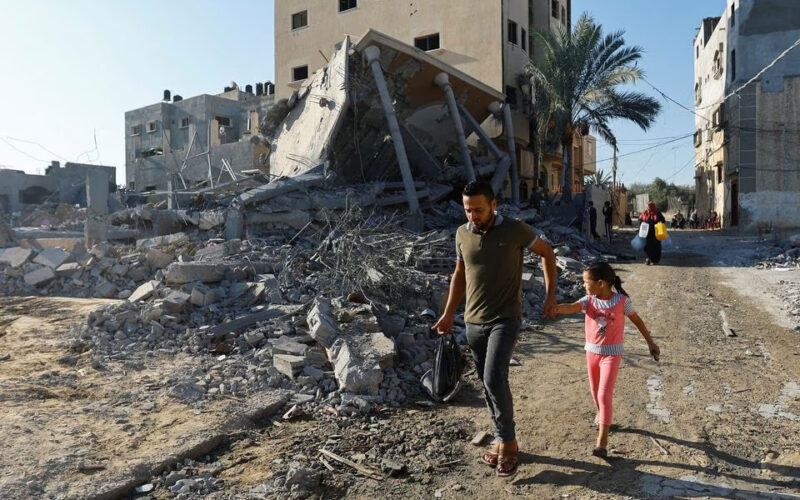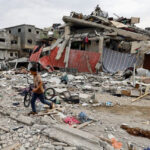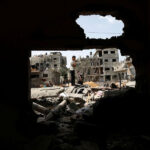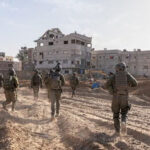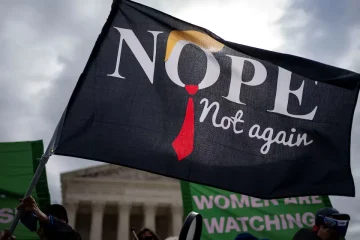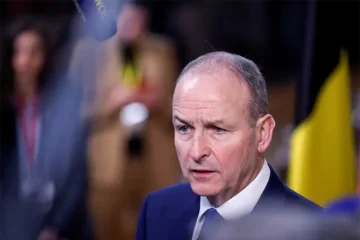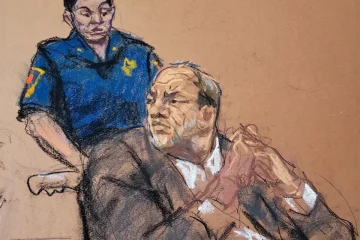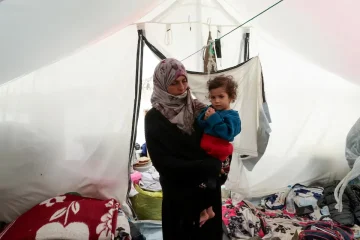ISRAEL’S Prime Minister Benjamin Netanyahu vowed to “demolish Hamas” as his troops prepared to move into the Gaza Strip in pursuit of Hamas militants whose deadly rampage through Israeli border towns shocked the world.
Israel has urged exhausted Gazans to evacuate south, which hundreds of thousands have already done in the besieged enclave that is home to more than 2 million people. Hamas, which runs Gaza, has told people to ignore Israel’s message.
Inside Gaza’s narrow and crowded streets, conditions were deteriorating as deaths from Israeli air strikes rose. Bodies were stored in ice cream freezer trucks because moving them to hospitals was too risky and cemeteries were full.
With fears of the conflict spilling further, U.S. Secretary of State Antony Blinken continued his tour of Middle East states, seeking to prevent escalation and secure the release of 155 hostages Israel says were taken by Hamas back into Gaza.
Arab leaders stressed the need to protect Gaza civilians.
“The reaction went beyond the right to self-defence, turning into collective punishment,” said Egypt’s President Abdel Fattah al-Sisi of Israel’s retaliatory strikes.
Clashes on Israel’s border with Lebanon, the deadliest since 2006, have underscored the dangers of regional spillover.
On Sunday, Hamas’ armed wing Al Qassam Brigades said it fired 20 rockets from Lebanon at two Israeli settlements while Lebanon’s Hezbollah militia said it fired missiles at Israeli barracks in Hanita and had inflicted casualties.
Israel said it was striking Lebanon in retaliation, and the U.N. peacekeeping force said its headquarters in south Lebanon had been hit by a rocket.
Iran, which backs both Hamas and Hezbollah, warned Israel of escalation if it kept attacking Palestinians.
“If the Zionist aggressions do not stop, the hands of all parties in the region are on the trigger,” said Foreign Minister Hossein Amirabdollahian, adding that Tehran could not simply stay an observer.
ISRAELI RESOLVE
Netanyahu convened Israel’s expanded emergency cabinet, including former opposition lawmakers, in a show of unity. “Hamas thought we would be demolished. It is we who will demolish Hamas,” he said.
Israel is carrying out the most intense bombardment Gaza has ever seen in response to the killing of 1,300 people when Hamas fighters rampaged through Israeli towns on October 7.
They shot men, women, children and soldiers and seized hostages in the worst attack on civilians in Israel’s history.
Graphic video of the attacks, and reports from medical and emergency services in the overrun towns and kibbutzes, deepened Israelis’ sense of shock.
France said 19 of its citizens had died in the Hamas attacks, with 13 others still unaccounted for and possibly taken hostage. Canada raised its fatality toll to five.
Authorities in Gaza said at least 2,670 people had so far been killed by Israel’s retaliatory strikes, a quarter of them children, and nearly 10,000 wounded. Another 1,000 people were missing and believed to be under rubble.
Gaza hospitals are running short of supplies and struggling to cope with the number of wounded.
Among them was 4-year-old Fulla Al-Laham, 14 members of whose family, including her parents and siblings, died in an Israeli air strike. “May God keep me alive to take care of her,” said her grandmother Um Muhammed Al-Laham, who held the girl’s hand as she lay in a hospital on a drip with a bandaged arm.
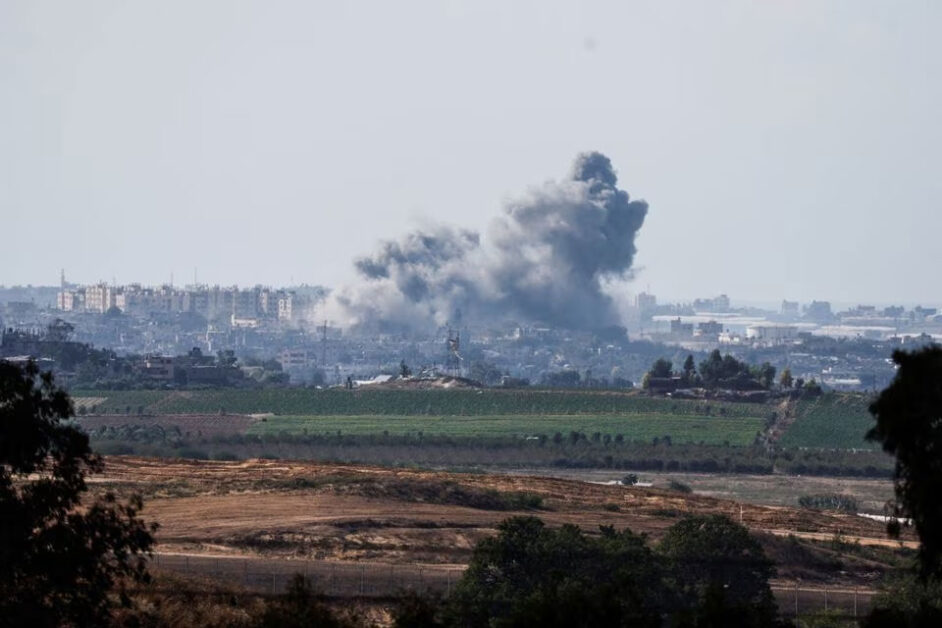
ON THE MOVE
The Israeli military said some 600,000 Gazans had left the northern half of the territory, which includes Gaza City’s more than 1 million residents.
“Hamas is trying to prevent your evacuation. We will enable it southward. Leave Gaza City and all the surrounding areas for the sake of your personal security,” said chief Israeli military spokesperson Daniel Hagari.
Some Palestinians who went south said they were heading back north because they were attacked wherever they went.
Hussam Abu Safiya, an intensive care doctor in a children’s ward at the Kamal Edwan Hospital in northern Gaza, said the order to evacuate was impossible.
“In this ward, as you can see, there are children who are attached to ventilators, and now we have been asked to evacuate the hospital, where should we evacuate these children?”
The World Health Organization said Israel’s orders to evacuate 22 Gaza hospitals were a “death sentence for the sick and injured”.
Hamas has said dozens of people were killed in strikes on cars and trucks carrying refugees south on Friday. Reuters could not independently verify this claim.
‘NAKBA’ TRAUMA
The events are reminding Palestinians of the “Nakba,” or “catastrophe,” when many were forced from their homes during the 1948 war that accompanied Israel’s creation.
Blinken met Saudi Arabia’s Prince Mohammed bin Salman in Riyadh then Egytian President Abdel Fattah al-Sisi in Cairo. Amid international efforts to ease the humanitarian crisis in Gaza, Blinken said the Rafah crossing between Gaza and Egypt would reopen.
“There’s a determination in every country I went to, to make sure that this conflict doesn’t spread,” said Blinken, who was due back in Israel on Monday.
“They are using their own influence, their own relationships, to try to make sure that this doesn’t happen.”
The conflict has dealt another blow to the global economy, with investors braced for more negative fallout.
“I have no clue whether markets will remain relatively well behaved,” said Erik Nielsen, group chief economics advisor at UniCredit. “It almost certainly depends on whether this latest conflict remains localized or whether it escalates into a broader Middle Eastern war.”

